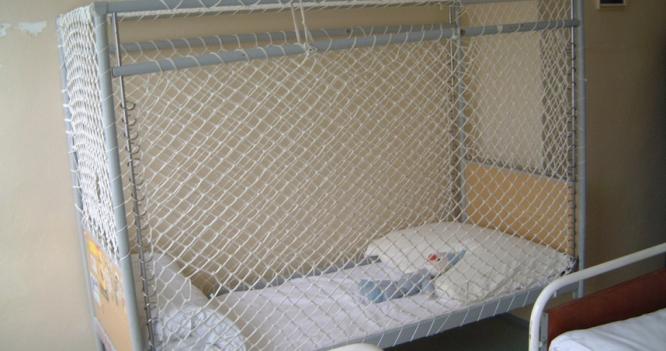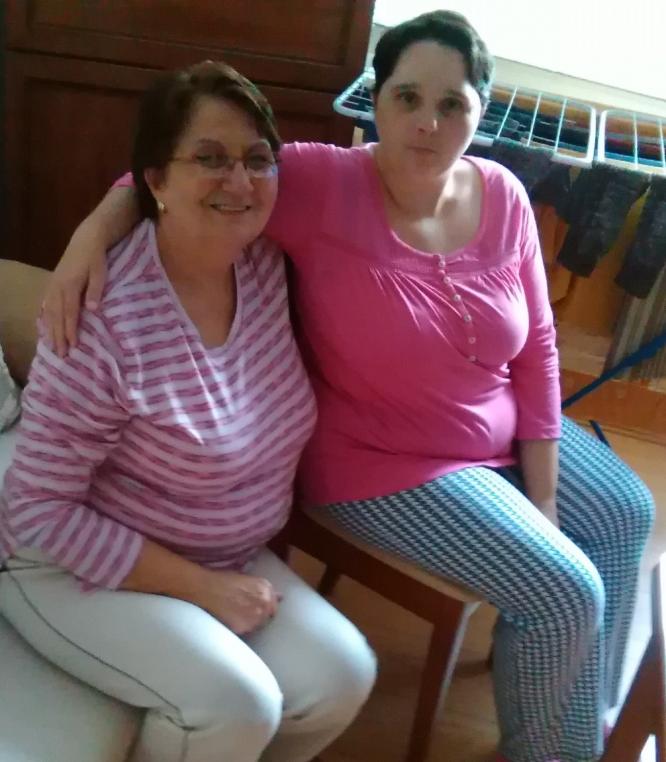Slovakia: UN says stop putting people in cages and get them out of institutions
The UN Human Rights Committee has recommended that the Slovakian Government abolish cage beds and restraints in psychiatric institutions and speed up the evacuation of people with disabilities out of institutions and into the community.
 A netted cage bed. © MDAC and the League of Human Rights.
A netted cage bed. © MDAC and the League of Human Rights.
More than 40,000 people with disabilities live in Slovakia’s social care and psychiatric institutions. These places segregate people from the community, and can become places of violence and abuse. Every day is the same: only mealtimes punctuate the endless boredom.
Placement in Slovakia’s institutions also gives rise to other human rights violations against people with disabilities. Abusive practices such as seclusion, forced treatment, placement in cage beds and the use of physical or chemical restraints are commonplace. Institutions serve as containment facilities rather than therapeutic settings, denying people with disabilities the opportunity to be included in their communities.
Steven Allen, MDAC Campaigns Director, said:
“MDAC welcomes the UN’s findings, and we urge the government to stop spending money on institutional models of confinement and coercion, and instead invest in community services, where people are included and supported.”
Since 2010, the government has issued strategies and documents and ratified the UN Convention on the Rights of Persons with Disabilities. Yet, it has spent tens of millions of Euros of EU funds on renovating buildings instead of shifting people out of institutions, a policy which has drawn criticism from the Council of Europe Commissioner for Human Rights. To date, not a single institution in the country has been closed and the government has failed to release information about the number of people with disabilities who have been successfully evacuated.
Welcoming the recommendations of the Human Rights Committee, Slovak social care expert Dr Miroslav Cangár said:
“To date there has been no real implementation of deinstitutionalisation in Slovakia and there are very few persons who have left institutions and moved to community-based services.”
 Lucka Černáková (right) and her mother. Source: family photo.
This year has seen heightened international concern about the slow pace of reform. Earlier this year, the UN Committee on the Rights of Persons with Disabilities criticised the deinstitutionalisation process as “too slow and partial”, while the European Parliament is currently investigating a petition on why vast sums of European money has been used to increase capacity and “reinforce institutionalisation”.
Lucka Černáková (right) and her mother. Source: family photo.
This year has seen heightened international concern about the slow pace of reform. Earlier this year, the UN Committee on the Rights of Persons with Disabilities criticised the deinstitutionalisation process as “too slow and partial”, while the European Parliament is currently investigating a petition on why vast sums of European money has been used to increase capacity and “reinforce institutionalisation”.
MDAC cooperates with local civil society organisations including Forum for Human Rights to meet governmental representatives and to carry out strategic litigation. We supported the case of Lucka Černáková, a woman who was locked in a psychiatric hospital where she was repeatedly beaten, restrained in straight-jackets and put in a cage bed. “What Lucka needed was someone to listen to her and to talk to her, to work with her in a professional manner,” said her mother.
Voices like Lucka’s and her mother’s illustrate the broader policy deficiencies and urgent reforms needed to mental health and social care in the country. MDAC collaborated with a number of Slovak organisations including Forum and SOCIA - Social Reform Foundation to provide a report to the UN Human Rights Committee, which was used in the recent review.

